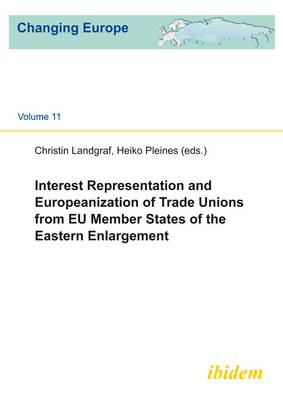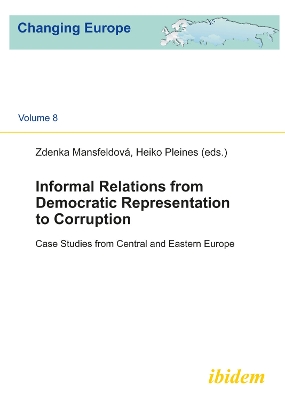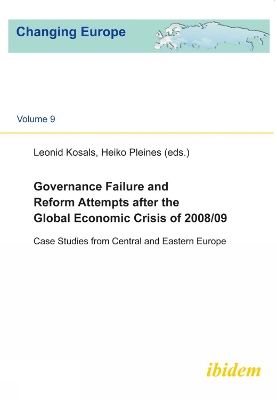Changing Europe (PUP)
4 total works
Interest Representation and Europeanization of Trade Unions from EU Member States of the Eastern Enlargement
by Christin Landgraf and Heiko Pleines
Published 7 December 2021
This book examines the integration of trade unions from the six biggest countries of the EU's Eastern enlargement of EU governance structures. Based on more than 150 in-depth interviews, comprehensive data, document research, and eight detailed case studies, contributions describe the activities and perceptions of the trade unions under investigation and different levels of engagement, including European umbrella organizations, interregional cooperation, and European Works Councils. The book contributes to political science research on interest representation and Europeanization, as well as sociological research on labor relations.
Civil Society in Central and Eastern Europe
by Heiko Pleines and Sabine Fischer
Published 7 December 2021
Utilising a wide range of empirical cases, the contributions in this edited volume highlight the different aspects of the role, development and societal background of civil society in Central and Eastern Europe. The first part of the book deals with dissent under socialism. The second part of the book looks at the role of civil society in the Western Balkans in the context of the break-up of the former Yugoslavia and the related ethnic conflicts. The third part goes on to examine the role of civil society in the post-Soviet region, which is marked by authoritarian tendencies. The fourth part returns to Central Eastern Europe with an analysis of the impact of EU accession on the role of civil society and considers the underlying aspects of a 'common European memory'. The final section of the book looks at two cases - one from Central Eastern Europe, one from the CIS region -- of political participation and lobbying by civil society organisations. This book presents a selection of the papers diskussed at the Changing Europe Summer School on 'Civil Society in Central and Eastern Europe' held at the National University of 'Kyiv-Mohyla Academy' (NAUKMA), Ukraine, in July 2009.
Informal Relations from Democratic Representatio - Case studies from Central and Eastern Europe
by Zdenka Mansfeldova and Heiko Pleines
Published 7 December 2021
Informal relations have been one of the major research topics of the social sciences since the 1990s. In order to allow for meaningful comparisons between different combinations of the positive and negative effects of informal relations on democratic representation, this book focuses on post-socialist Central and Eastern Europe as a particular region where formal democratic rules have been established, but competing informal rules are still strong. A broad spectrum of related analytical concepts is discussed from different perspectives and from different academic disciplines, then empirical cases of the relationship between informal relations and democratic representation are analyzed. The contributions span the whole continuum, as we perceive it, from civil society networks seen as supporting democratic representation to the perversion of democratic representation through political corruption. The final part of the book takes a closer look at corruption through four case studies from Russia.
Governance Failure and Reform Attempts After the - Case Studies from Central and Eastern Europe
by Leonid Kosals and Heiko Pleines
Published 7 December 2021
The global economic crisis of 2008/2009 has had a broad impact far beyond economic concerns. Most importantly, it has been seen as a crisis of governance and debates have not just questioned specific regulations, e.g. of global financial markets, but have additionally challenged the appropriateness of underlying governance concepts not only in global markets, but also at the national level. For the post-socialist countries, which adopted market-oriented governance mechanisms less than two decades ago, the global crisis was the first stress test after the post-socialist recovery. The contributions in this book focus on the impact of the crisis and related reform attempts in two important areas. The first area is financial and monetary policy, which is at the core of the global crisis of 2008/2009. The second area is relations between business and state actors, where corruption and weak institutional frameworks can both seriously hamper reform attempts. The volume comprises essential contributions on how the post-socialist countries have tried to cope with the first global economical crisis they saw themselves confronted with.



